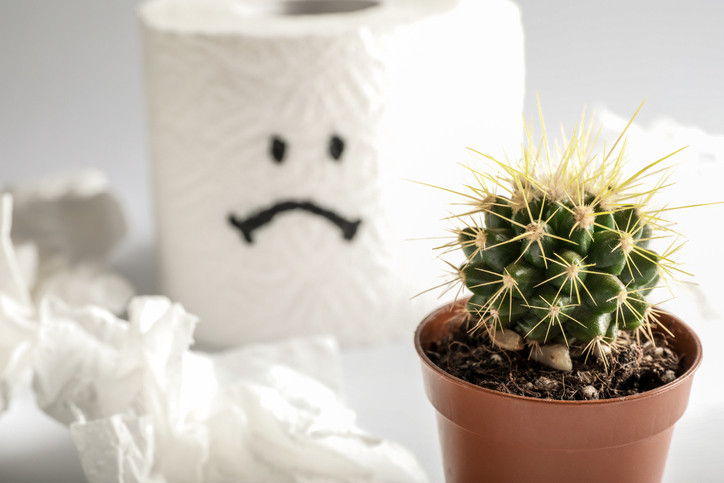
Zinc: What it does for the body, and the best food sources

Respiratory health harms often follow flooding: Taking these steps can help

Tips to leverage neuroplasticity to maintain cognitive fitness as you age

Can white noise really help you sleep better?

Celiac disease: Exploring four myths

What is prostatitis and how is it treated?

What is Cushing syndrome?

Exercises to relieve joint pain

Think your child has ADHD? What your pediatrician can do

Foam roller: Could you benefit from this massage tool?
Harvard Health Blog
Read posts from experts at Harvard Health Publishing covering a variety of health topics and perspectives on medical news.
Articles
Seeking solace, finding resilience in a pandemic
Over the past year, so many of us have experienced various forms of trauma, and reported mental health symptoms have increased dramatically. But at the same time, people have shown resilience and found small moments of solace, relief, and even joy in life’s simple pleasures — and these moments help.
Grandparents and vaccines: Now what?
Lowering cholesterol protects your heart and brain, regardless of your age
Studies have consistently shown that lowering LDL cholesterol reduces the risk of cardiovascular events and death. But do older adults — even those with existing cardiovascular disease — get the same benefits from lowering cholesterol, and do they face any additional risks from taking cholesterol-lowering medication? An analysis of data from previous studies reached some favorable conclusions.
Natural remedies for hemorrhoids
Hemorrhoids are painful and unpleasant, and difficult to talk about. But they are common among people over 50, and they are not dangerous and can be managed with simple remedies and self-care.
Want to feel more connected? Practice empathy
Empathy helps people get along with others, but the ability to understand another person’s experience comes more easily to some people than to others. However, the capacity for empathy can be honed and improved like any other skill.
Does your health monitor have device bias?
The accuracy of health monitoring devices available to consumers varies, and in some instances skin tone may make a difference –– a problem called device bias. Yet proper function of such devices can have significant implications for the health of those using them.
The link between abdominal fat and death: What is the shape of health?
Body mass index is commonly used to assess a person’s weight status and health risk, but it does not indicate how much fat a person has or how it is distributed throughout the body — indicators of metabolic health. A recent study analyzed different measures of body shape to determine which are most predictive of premature death.
Why won't some health care workers get vaccinated?
What’s your approach to health? Check your medicine cabinet
Attitudes toward health –– broadly, maximalist or minimalist –– tend to form early in life and are embedded in our family’s approach to health and well-being. The contents of your medicine cabinet reflect which approach you prefer.
Grandparenting: Anticipating March 11
5 myths about endometriosis
While as many as one in 10 American women is affected by endometriosis, it can take years to get a correct diagnosis because the symptoms may mimic other common conditions. And myths about this condition may keep some women from seeking help.
Flowers, chocolates, organ donation — are you in?
February 14th is more than Valentine's Day –– it's also National Donor Day, when health organizations sponsor sign-ups for organ and tissue donation. For those in need, such a donation can be life-changing — or lifesaving. If you wonder what can be donated or how, read on.
Can dust mite allergy be treated with a pill?
For decades, people with an allergy to dust mites took over-the-counter medications for relief, and if those were not effective they could choose to receive a course of immunotherapy shots that lasted years. A newer form of treatment is available in pill form and is taken at home.
Need to revisit screen time?
Restrictions caused by the pandemic have led both adults and children to spend a lot of time on screens. It’s not great for adults, and it’s more of a concern for kids because too much screen time has effects on behavior, learning, and mood. So, what steps can parents take to change this?
COVID-19 vaccines: Safety, side effects — and coincidence
As the pandemic rages on, rapid development of COVID-19 vaccines is welcome news since widespread vaccination is essential to help contain it. But while many are scrambling to get a vaccine, others hesitate due to concerns about effectiveness and safety.
Midlife ADHD? Coping strategies that can help
When ADHD persists through early adulthood into middle age, it presents many of the same challenges it does in childhood, but with added pressures from the busier pace of life and expectations from work and family. Fortunately there are strategies that can help you navigate this condition.
New guidelines on newborn jaundice: What parents need to know
Most newborn babies turn a little yellow. This is known as jaundice, and it's very common in the newborn period. But in some very rare cases it can be a sign of a more serious problem. Here's what parents need to know about it.
Improving PET scans are good news for doctors and patients alike
A recent blog post discussed a newly approved imaging agent with an unwieldy name: gallium-68 PMA-11. Delivered in small amounts by injection, this minimally radioactive tracer sticks to prostate cancer cells, which subsequently glow and reveal themselves on a positron emission tomography (PET) scan. Offered to men with rising PSA levels after initial prostate cancer […]
What’s behind racial disparities in kidney disease?
Kidney disease requiring dialysis or transplant is far more common among African Americans than among white Americans, but genetics and biology play only a small role in this excess risk; the difference is linked to social and economic injustice rooted in systemic racism, and all the added burdens associated with it.
Harvard Health Ad Watch: Can an arthritis drug help you become a morning person?
An ad for an arthritis medication seems to suggest that taking it will alleviate or even eliminate morning stiffness, allowing you to hop out of bed. Like most drug ads, this one has unspoken messages and glosses over questions about side effects and cost.
3 easy ways to get active — right now
Thinking about exercising is great, but just jumping in is often the best way to blast past mental or emotional barriers. You don’t need a complex workout program; start small and focus on making activity a daily habit. Here are easy ways to add activity to your day.
How does sleep affect your heart rate?
During waking hours you may feel your heart rate fluctuating, and activity or intense emotions can cause it to spike. But what happens to your heart rate when you sleep? It varies then too, depending on the phase of sleep you are in.
Are early detection and treatment always best?
The culture of American medicine has long believed and supported the idea that more early detection and treatment is best. But some testing is costly, invasive and carries needless risks, and some conditions go away on their own. Early detection and treatment can be lifesaving — just not for every health issue.
Shingles of the eye can cause lasting vision impairment
There are about one million cases of shingles in the US each year, and up to 20% of those involve nerves in the head, where the infection can affect various parts of the eye. If a case of shingles involves the upper face, forehead, or scalp, it is important to see an ophthalmologist promptly, because complications can lead to eye damage and possible vision impairment.

Zinc: What it does for the body, and the best food sources

Respiratory health harms often follow flooding: Taking these steps can help

Tips to leverage neuroplasticity to maintain cognitive fitness as you age

Can white noise really help you sleep better?

Celiac disease: Exploring four myths

What is prostatitis and how is it treated?

What is Cushing syndrome?

Exercises to relieve joint pain

Think your child has ADHD? What your pediatrician can do

Foam roller: Could you benefit from this massage tool?
Free Healthbeat Signup
Get the latest in health news delivered to your inbox!
Sign Up

























